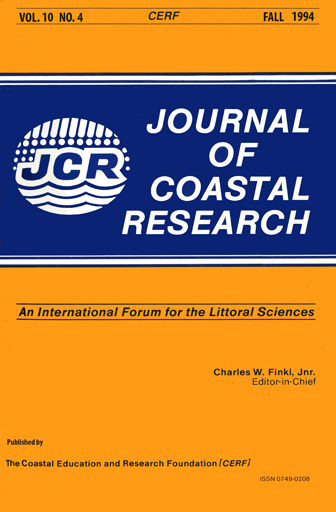Peat Collapse, Ponding and Wetland Loss in a Rapidly Submerging Coastal Marsh
Keywords:
Marsh, soil, delta, coast, sedimentation, saltwater intrusion, marsh elevation, marsh loss, and pond initiation, LouisianaAbstract
Conversion of coastal marshes to inland open water is often associated with plant stresses such as saltwater intrusion into non-saline marshes and soil waterlogging, but the physical processes that initiate pond formation are not clear. We hypothesized that marsh elevation decreased rapidly following plant mortality because of structural collapse of the living root network. We monitored the elevation of 20 marsh hummocks between April 1990 and April 1992. Near total plant mortality occurred within 1 year and was attributed to excessive flooding. Hummock elevation decreased almost 15 cm within 2 years but elevation of adjacent ponds showed no trend. Plant stubble was still rooted in place on the submerged hummocks, and even slight evidence of surface erosion was not noted until the end of the study. The 137Cs inventory in soil collected before and after the study also indicated that peat collapse rather than erosion caused the elevation decrease. Thus, peat collapse may initiate interior marsh ponds that subsequently spread via erosion and may partly explain why some marshes experiencing plant mortality convert to open water rather than re-vegetate. Peat collapse appeared to be the primary mechanism of marsh loss in this Louisiana hotspot.


